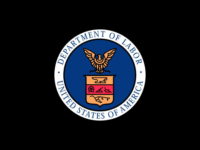NLRB Issues Proposed Rulemaking on Joint-Employer Standard

The National Labor Relations Board (NLRB) issued a notice of proposed rulemaking addressing the standard for determining joint-employer status under the National Labor Relations Act (NLRA).
Under the proposed rule, two or more employers would be considered joint employers if they "share or codetermine those matters governing employees’ essential terms and conditions of employment,” such as wages, benefits and other compensation, work and scheduling, hiring and discharge, discipline, workplace health and safety, supervision, assignment, and work rules. This would rescind and replace the joint-employer rule that took effect April 27, 2020.
“In an economy where employment relationships are increasingly complex, the Board must ensure that its legal rules for deciding which employers should engage in collective bargaining serve the goals of the National Labor Relations Act,” said Chairman Lauren McFerran. “Part of that task is providing a clear standard for defining joint employment that is consistent with controlling law. Unfortunately, the Board's joint employer standard has been subject to a great deal of uncertainty and litigation in recent years. Rulemaking on this issue allows for valuable input from members of the public that will help the Board in its effort to bring clarity and certainty to these significant questions.”
Two entities that are joint employers under the NLRA must both bargain with the union that represents the jointly employed workers. They are also liable for unfair labor practices committed by the other and subject to union picketing if there is a labor dispute.
“It is unfortunate that the Biden NLRB took an ax to the ABC-supported 2020 NLRB joint employer final rule, which provides clear criteria for companies to apply when determining status,” said Ben Brubeck, Associated Builders and Contractors vice president of regulatory, labor and state affairs. “Today we see that the partisan NLRB proposes to greatly expand joint-employer liability under the NLRA, which will cause confusion and impose unnecessary barriers to and burdens on contractor and subcontractor relationships throughout the construction industry. As a result, contractors may be vulnerable to increased liability, making them less likely to hire subcontractors, most of whom are small businesses.”
Comments on this proposed rule must be received by the NLRB on or before Nov. 7. Comments replying to comments submitted during the initial comment period must be received by the Board on or before Nov. 21.
Looking for a reprint of this article?
From high-res PDFs to custom plaques, order your copy today!





